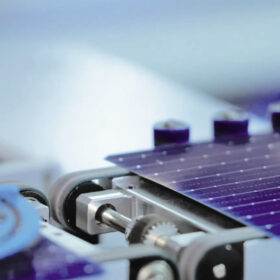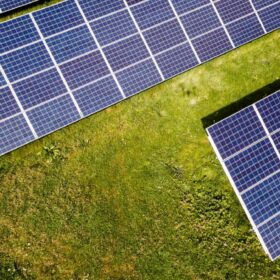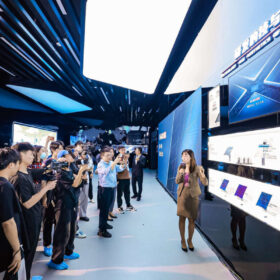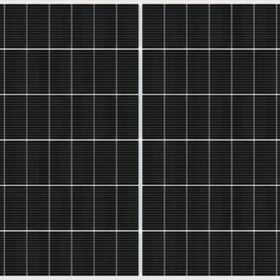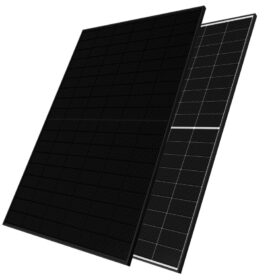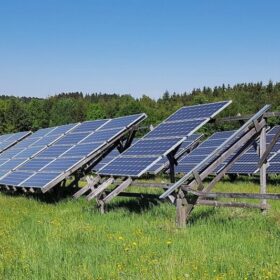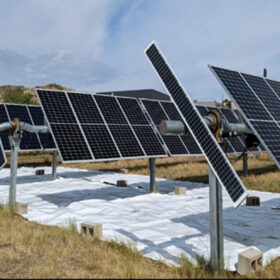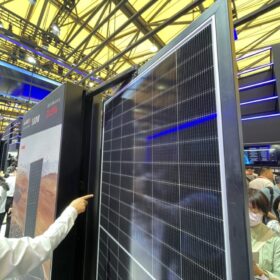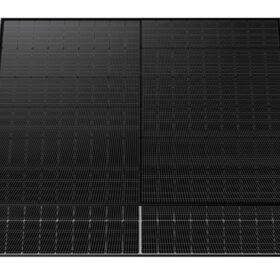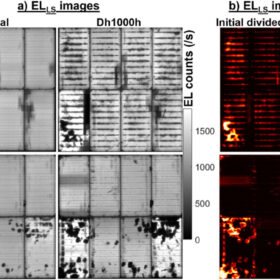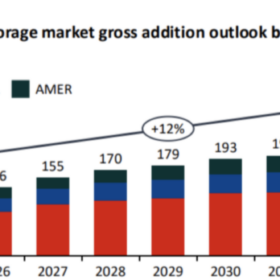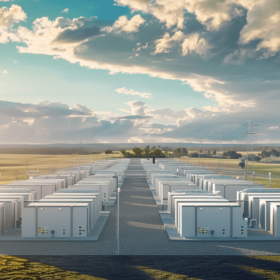JinkoSolar claims 33.24% efficiency for perovskite-silicon tandem solar cells
JinkoSolar says it has achieved a 33.24% efficiency rating for its perovskite-silicon tandem solar cells, confirmed by the Shanghai Institute of Microsystem and Information Technology under the Chinese Academy of Sciences.
Study finds excessive row spacing has limited effect on improving PV system performance
Scientists in China have tested the influence of panel row spacing in increasing a PV system performance in a full-scale outdoor PV array experimental platform. They found that larger row spacing plays a limited role in improving thermal convection, observing that solar irradiance and wind speed are the key parameters for optimal PV system design.
Longi introduces 630 W HPBC modules with 23.3% efficiency
Chinese manufacturer Longi says its new Hi-MO X6 Scientist series has a temperature coefficient of -0.28%/C and a power output ranging from 620 W to 630 W. They rely on the company’s proprietary hybrid passivated back contact cell technology.
REC launches 640 W heterojunction solar module with 22.5% efficiency
REC has developed a new series of heterojunction solar panels with efficiencies up to 22.5% and an operating temperature coefficient of -0.24% per degree Celsius.
Sharp unveils new TOPCon solar modules
The Japanese electronics manufacturer has launched the NU-JC440 and NU-JC430B panels with efficiencies of 22.53% and 22.02%, respectively. Both products are IEC/EN61215 and IEC/EN61730-certified and rely on M10 wafers.
Research shows repaired PV modules can perform with acceptable losses
A research group in Spain has demonstrated the technical feasibility of using repaired solar modules with satisfying results. However it warned that there is an urgent need to define a protocol for evaluating the features of a “viable” repaired panel.
Research shows high-albedo ground reflectors increase bifacial solar plant yield by up to 4.5%
Tests conducted by Canadian researchers at the NREL’s testing field in the United States have shown that ground reflectors based on high-density polyethylene can significantly increase bifacial PV plant performance. They stressed the profitability of this technology is strictly dependent on the location and warned about combining it with inverter clipping.
Longi announces 27.30% efficiency for heterojunction back contact solar cell
The Chinese module manufacturer said the new efficiency record was confirmed by Germany’s Institute for Solar Energy Research (ISFH).
Winaico launches new series of n-type TOPCon solar modules
Taiwanese manufacturer Winaico says its new 430 W glass-glass tunnel oxide passivated contact (TOPCon) modules have a power conversion efficiency of 22.02%.
UNSW researchers warn of surprising TOPCon solar module vulnerabilities
Researchers at the University of New South Wales claim to have identified three TOPCon panel failure types that are absent in PERC products. They explained that these failures may occur when the modules are exposed to high humidity and contaminants before encapsulation.

